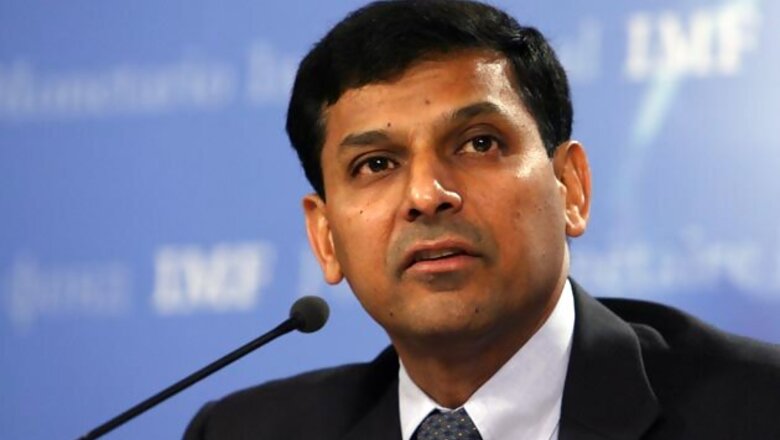
views
Mumbai: Reserve Bank Governor Raghuram Rajan on Monday said he would like the political systems in developed countries to do more rather than depending on monetary policies to boost their sagging economies.
"My colleagues in industrial countries are trying too hard (to revive their economies), and I would prefer monetary policy to do less and other parts of the economy, including the political system, to do more. If we try too hard, then we raise the probability of a crisis," Rajan said at an event on Monday.
The Governor was answering a question from the audience whether given the ultra-loose money policies of the developed country central bankers, he was predicting yet another 2008-type crisis which he had correctly forecast.
In an interview given to the London-based Central Banking Journal last week, Rajan had warned of a global crisis arising from an asset price crash due to the cheap money.
"We are taking a greater chance of having another crash at a time when the world is less capable of bearing the cost," Rajan warned.
He also expressed fears that central banks "may be exhausting room on the financial side and creating a situation where there will be a discontinuous movement in financial sector".
Rajan said he did not mean (in the interview) that another crisis was imminent but only was worried about the fact that the monetary policy was doing too much.
"Instead of the political system taking action, reforming the economy, etc, as industrial countries also need reforms, they are relying on the monetary authorities to provide whatever boost that was required.
"I thought this was dangerous because monetary authorities across the world are boosting asset prices rather than real activity."
Rajan said if asset prices leak out in a sharp way then it will create immense volatility and potentially some countries will be caught in that whirlpool.
He said if interest rates inches up in industrialised economies there could be volatility across the world.
He, however, was quick to add that the strong macroeconomic fundamentals would help our country withstand any kind of volatility.
"We will be tested by capital outflows and my hope is that we have done enough in terms of strengthening the macroeconomic fundamentals of the country...as well as in building up reserves," Rajan said.
On a question over why none of the domestic banks figure in the top 50 global banks, Rajan said we too have large banks relative to the size of the economy but we have low credit-to-GDP ratio.
"We need to grow the credit-to-GDP ratio from the current levels and we can have world size banks," Rajan said.



















Comments
0 comment